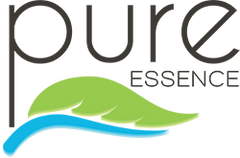It’s been almost two years since the outbreak of COVID-19 began. And since it still looms over the health of billions, many are searching for natural ways to improve their health and boost their immune system. So, it should come as no surprise that Eastern cultures have looked to traditional medicines for answers. One of those answers lies in the herb, Andrographis.
A little over a year ago, research began in Thailand to study if Andrographis can improve the symptoms of COVID-19. In December 2020, the Thai government approved use of the herb for medical treatment of the virus. But can it really do the job?
What is Andrographis
Native to the tropics of South Asia, specifically India and Sri Lanka, Andrographis has long been used to support a healthy immune response and as a potent antiviral and antibacterial. Although it has been used as part of Traditional Chinese Medicine (TCM) and Ayurveda for centuries, it’s not as well known in the West – YET. So, don’t be surprised if you’ve not yet heard of it.
Andrographis (Andrographis paniculata) has many traditional names, including Indian Echinacea and “King of Bitters”. And true to its nickname, Andrographis has an exceptionally bitter taste, which may be the reason why you won’t find it in recipes other than health tonics. Some believe that it does pair well with ginger, but we’ll leave that decision to you.
Though the plant flowers annually, the best parts to use are the leaves, because they have the highest concentration of phytochemicals that give it its punch.

Why You Should Know About It
In Ayurveda and TCM, Andrographis is used as for detoxing, healthy digestion, immune support, and to support the liver and kidney systems. It is recommended to help prevent and ease the symptoms of common cold and flu. Ayurvedic historians say that it played a part in stopping the 1919 flu epidemic in India. While hard evidence of that is lacking, several studies have shown that Andrographis can reduce the symptoms of respiratory infections like those associated with flus and the common cold.
Like other herbs in the Acanthaceae family, Andrographis delivers phytochemicals that are anti-inflammatory, antioxidant, immunomodulatory, anti-viral, and antibacterial. While laboratory studies also show anticancer activity, no human studies yet confirm this. The phytochemicals responsible for these effects are andrographolides. [1],[2]
Andrographolides are diterpene lactones shown to support normal circulation and blood pressure, healthy blood sugar balance, and normal liver function. They also regulate levels of immune cells in the blood and have a natural affinity for antioxidant responses in kidney and liver cells. [3]
These properties suggest that Andrographis might help with symptoms of many viral infections, including common colds and flus. However, more research is needed to know if it can help against COVID-19.
As research continues into Ayurveda and Traditional Chinese, Japanese, Korean and Tibetan health systems, confirmation of the positive effects of herbs are rolling in. Most reasonable people would expect this, because no decent physician keeps using something that provides no benefit, and hundreds of generations of physicians have recommended these herbs for thousands of years. Double blind, placebo controlled studies aside, when hundreds of millions of people over thousands of years say they’ve done with a plant based medicine than without it, it’s logical to assume it has value.
The bottom line is that even if you don’t want to use Andrographis to self-medicate for COVID-19, it’s a wondrous herb to support a healthy immune response. With cold and flu season already here, bolstering your immune response with herbs that possess antibacterial, antiviral, and antioxidant properties is a definite positive!
NOTE: Those undergoing chemotherapy or using drugs based on substrates of PT Cytochrome 450 or UDP glucuronosyltransferase should avoid Andrographis. Those using blood pressuring lowering drugs should consult their physician before using Andrographis, as it can further lower blood pressure. Andrographis is also not recommended for those who use anticoagulant or antiplatelet drugs.
Sources
[1] Akbar, Shahid. “Andrographis paniculata: a review of pharmacological activities and clinical effects.” Alternative medicine review : a journal of clinical therapeutic vol. 16,1 (2011): 66-77.
[2] Dai, Yan et al. “Overview of pharmacological activities of Andrographis paniculata and its major compound andrographolide.” Critical reviews in food science and nutrition vol. 59,sup1 (2019): S17-S29. doi:10.1080/10408398.2018.1501657
[3] Mussard, Eugenie et al. “Andrographolide, a Natural Antioxidant: An Update.” Antioxidants (Basel, Switzerland) vol. 8,12 571. 20 Nov. 2019, doi:10.3390/antiox8120571

